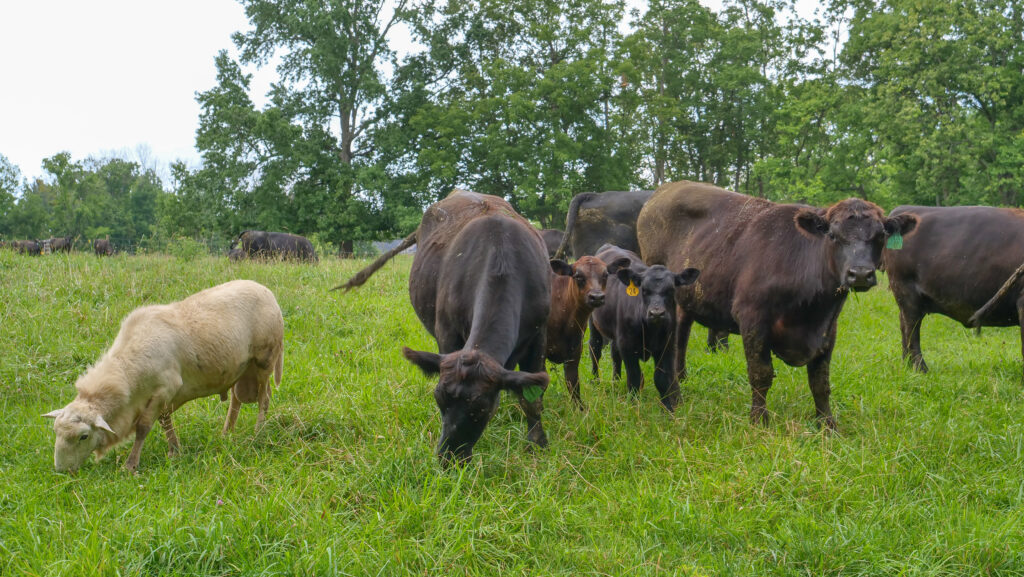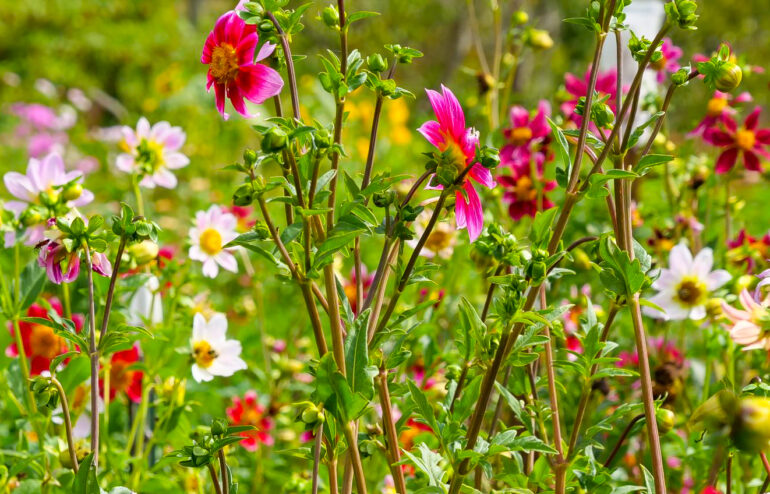
Around Greenacres - Summer 2024
A Toast to Summer
In June, Greenacres hosted a special Farm-to-Table event in collaboration with Oakley Wines. The evening began with a unique cocktail experience, where guests used Greenacres-grown garnishes to craft their own drinks, while learning about our gardening practices from the Greenacres Garden Team.
The highlight was a 4-course dinner featuring fresh meats and produce from Greenacres, paired with select wines from Oakley Wines. Chef David Saffles, known for his creative culinary skills, crafted a menu that highlighted local flavors. Katie Reeder, Wine Director at Oakley Wines, and Stephanie Webster, Founder of The Rhined & Oakley Wines, provided their expertise and shared their passion for fine food and wine.
We extend our heartfelt thanks to everyone who attended and contributed to making this event a success. Your presence and support made for a memorable evening of fine dining and community.
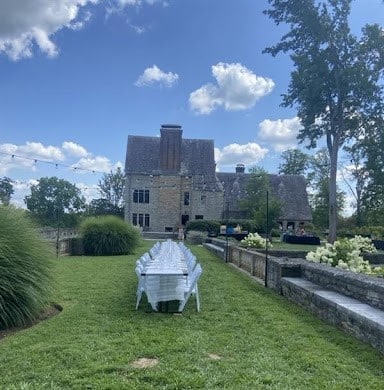
Preparing for the Nippert Barn Opening
The Buildings and Grounds Team has been busy all summer preparing for the exciting opening of the Nippert Barn. Their efforts are focusing on creating custom features that will enhance this incredible new space at Greenacres.
The team is building custom checkout counters and tables for the new Farm Store, as well as designing engaging displays for the Experience Center and classroom space. These displays will include a native grass root showcase and a bee hive exhibit, offering unique educational opportunities for visitors.
Outside, they’re collaborating with the Garden Department to design new fences and gates along the driveway, and they are working on a custom fence for the Nippert Garden. Additionally, they’re creating a new entrance sign that will warmly welcome guests to the barn.
The Buildings and Grounds Team’s dedication to these projects is helping bring the vision for the Nippert Barn to life, and we can’t wait to share this exciting new space with you soon!
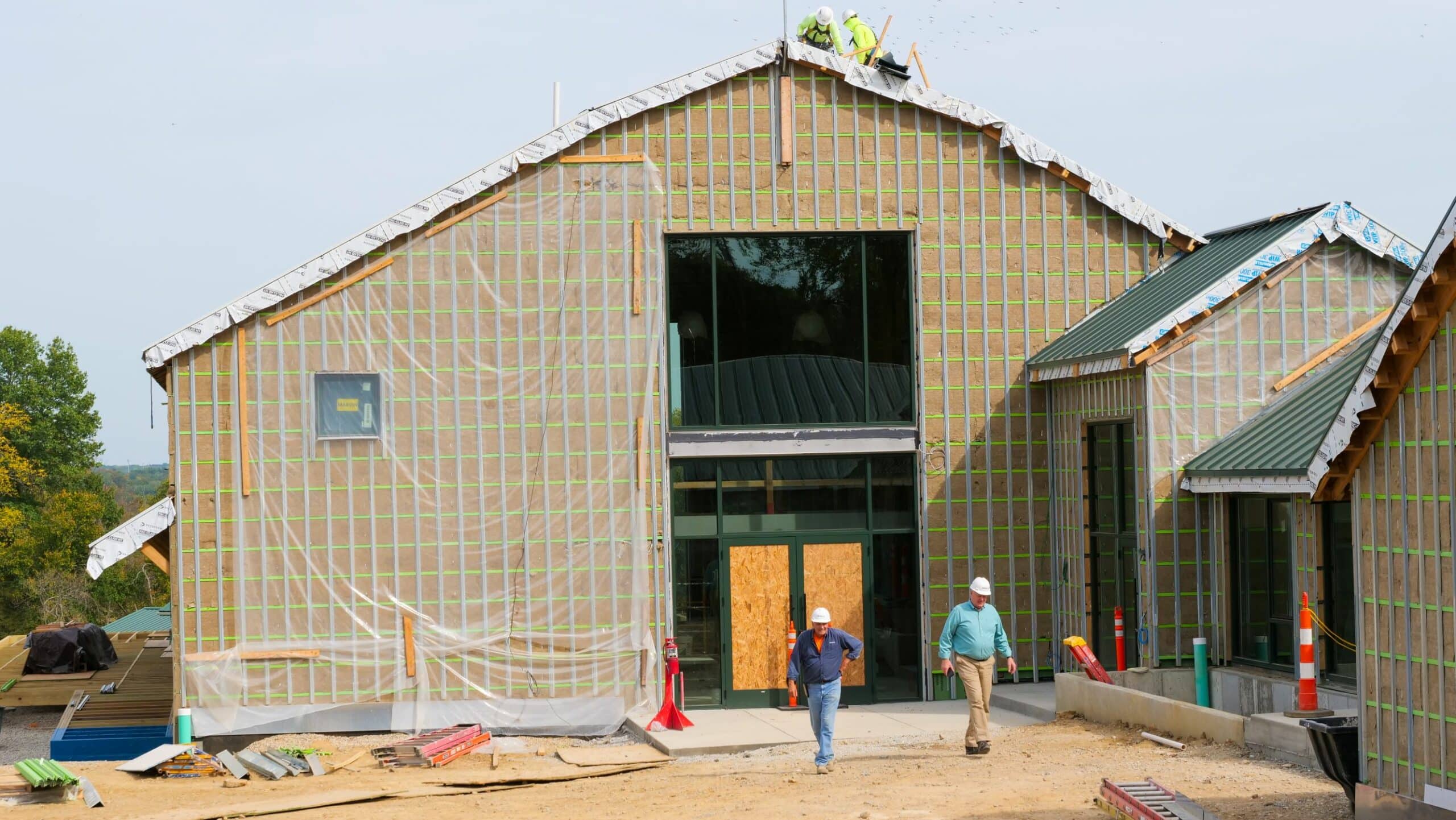
Raising Turkeys the Right Way
As we gear up for Thanksgiving and Turkey Week at Greenacres, the Livestock Team has been working hard all summer raising our flock of Broad Breasted Bronze turkeys. These birds arrive as day-old chicks and are carefully nurtured over a 16-week period until they’re ready for your holiday table.
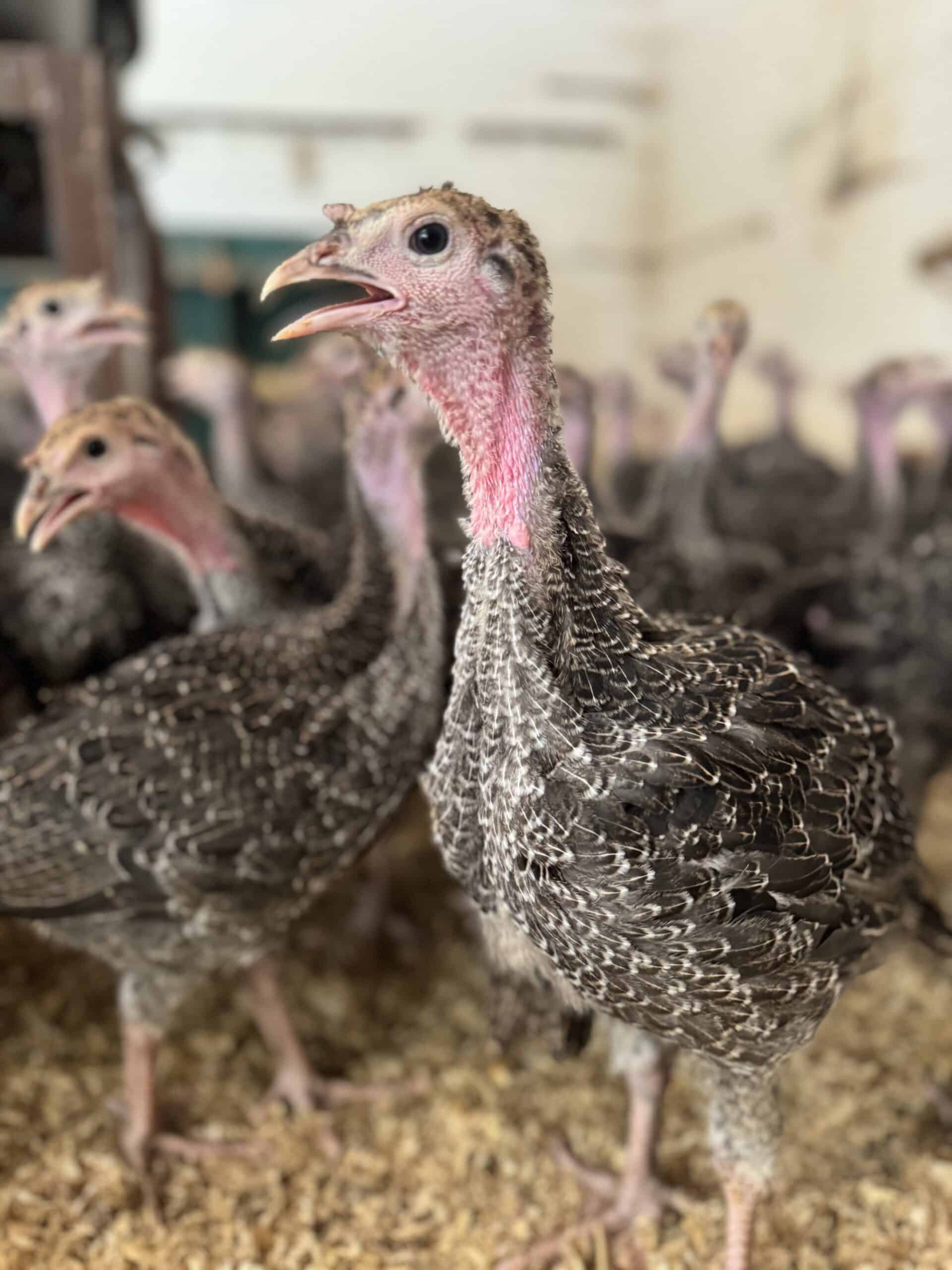
For the first five weeks, the turkeys stay indoors where we use heat lamps to regulate their temperature—keeping them safe and cozy while they grow. After that, they move outdoors to enjoy fresh pasture every day in a carefully managed rotation. Each year, we raise the turkeys on different fields to avoid potential health issues, ensuring they grow in the best possible conditions. Curious about our process? Learn more about how we raise our turkeys here.
Now, we’re excited to announce that you can reserve your 2024 Thanksgiving turkey or ham! To secure your spot, order now before they’re gone.
Horses Unleash Their Inner Picassos
The Equine Department was full of energy this summer, hosting a variety of engaging camps and programs. From our popular rider-themed camps, like Horsin’ Around, to collaboration camps with other Greenacres education departments, the stables were constantly abuzz with activity. In addition, we held several Exploring With Grace programs, where around 140 children had the chance to learn about and interact with our amazing horses. These programs ranged from single-day events to 3-part series, catering to children aged 5-18.
A standout highlight of the summer was our horse painting activity! Children teamed up with a horse to create vibrant abstract masterpieces. Using grain placed on plastic-wrapped canvases, the horses swirled paint across the surface with their muzzles as they nibbled, creating one-of-a-kind designs. It was a fun and memorable experience for everyone involved—including the horses, who showed their excitement by nickering and whinnying as soon as they saw the canvases!
In addition to these exciting activities, the Equine Department welcomed three new staff members, who will be helping launch brand-new equine education field trips. We look forward to seeing how these new programs will continue to enhance our educational offerings in the future!

Companion Planting
If you haven’t joined one of our farm tours or Ley Field Garden Picnics yet, you might be surprised to learn that we grow flowers in our vegetable gardens. While the bright blooms certainly add beauty to the rows of crops, their true value goes much deeper.
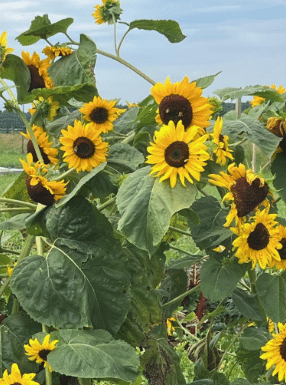
Flowers play a crucial role in companion planting by attracting beneficial pollinators and deterring pests. A stroll through our garden will reveal calendula, zinnias, sunflowers, alyssum, safflower, and chamomile—all strategically planted to support our vegetables.
For instance, calendula attracts beneficial insects like ladybugs and lacewings, which help keep pests in check. Marigolds, on the other hand, are known for repelling or trapping insects that can damage crops. Bees and other pollinators are also drawn to the flowers, helping to spread pollen across vegetable blooms, which boosts productivity.
By welcoming a variety of beneficial insects, flowers help keep our plants healthier, and in return, the vegetables they produce are more nutritious. Next time you’re tending to your own garden, consider adding flowers to your plot for a vibrant, more productive space!
Exciting Progress at Spooky Hollow Farm Wetland
The restoration work at Spooky Hollow Farm Wetland continues to thrive, marking another successful season of environmental stewardship. Originally a small farm pond with a failed berm, the wetland has been transformed into a vibrant hub for environmental education since its construction in 2019.
This summer, the focus was on managing invasive species and planting native flora. After efforts to control invasive shrubs and brambles in the surrounding woodlands in the winter of 2023 and spring of 2024, the team planted over 20 native shrubs and understory trees. Buttonbush shrubs, for example, now provide essential shade and cover for wildlife, while redbud trees will soon enrich the woodland’s understory.
The wetland banks were also enhanced with native forbs and grasses, contributing to the site’s ecological health. These ongoing efforts will not only support local wildlife but will also create even more engaging educational opportunities at Spooky Hollow Farm for years to come.
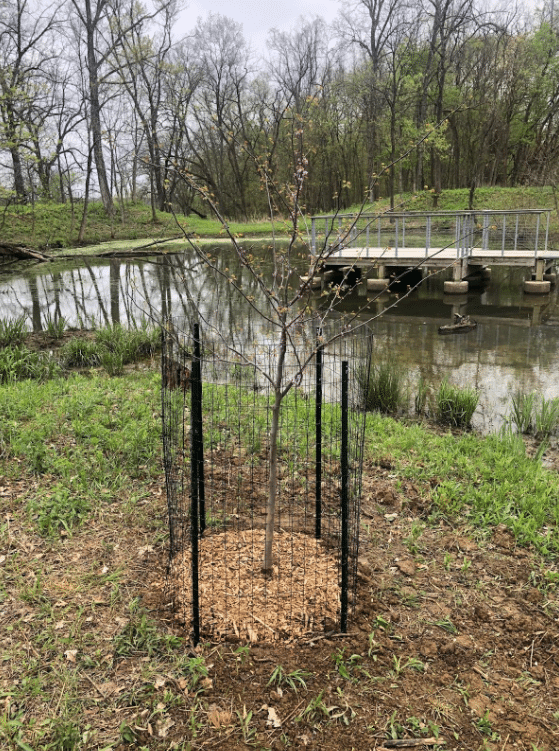
Cultivating Future Educators
This summer, we successfully launched the pilot year of our Educational Internship Program, an exciting initiative aimed at nurturing the next generation of educators. Five Environment Education Interns joined us across our Indian Hill and Milford sites, working alongside full-time educators. Over the course of the summer, they observed and learned from our staff, preparing to lead their own student groups this fall.
At Greenacres, we have always believed in using nature as our classroom—whether it’s a stream, forest, pond, or field—and the Internship Program was another step toward growing educators who can continue this mission. The interns participated in specialized trainings every Tuesday, led by Greenacres staff, where they gained valuable insights into teaching strategies, natural history, and other departments at Greenacres. They also took part in field trips to local organizations, expanding their professional knowledge and network.
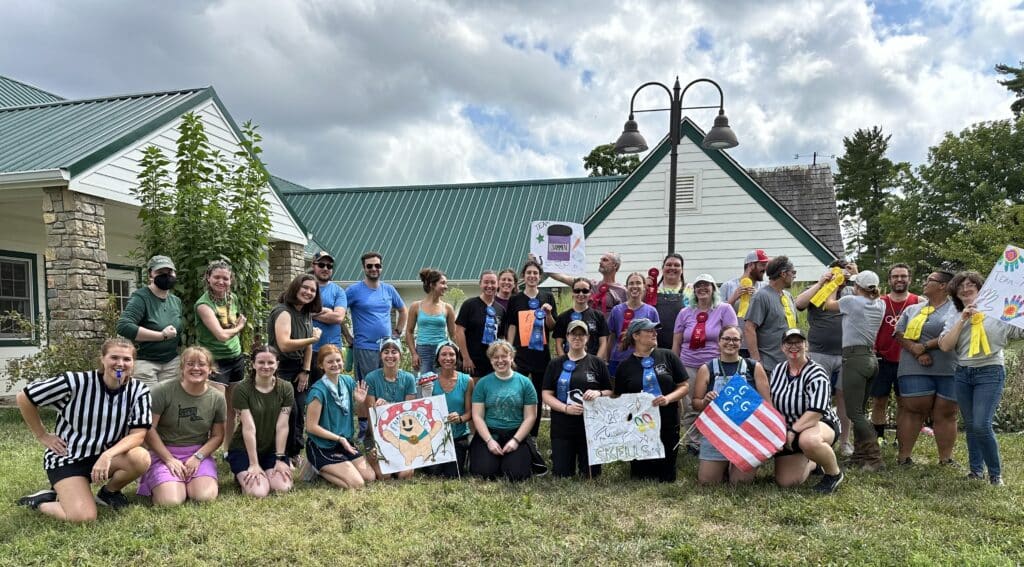
As part of our future plans, we are excited to expand the program in 2025 to include internships in our Arts and Agriculture Education Departments. Applications for the 2025 cohort will open in March of next year.
We were thrilled to have these passionate individuals join the Greenacres team and look forward to seeing how they apply their skills in the future!
Sustainable Farm Management Workshop Highlights
This August, we hosted a workshop with Holistic Management International (HMI) focused on sustainable farm management practices. It was a pleasure partnering with HMI to host this workshop. Workshops like this play a vital role in empowering farmers and land managers to create thriving, resilient ecosystems that balance the needs of people, land, and fiscal health. To learn more about the workshop and HMI, visit: Finding Balance in Farm Management
